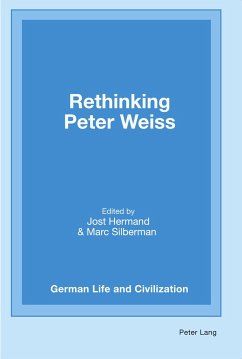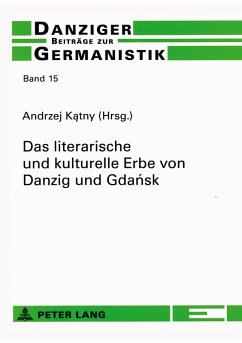
Back to the Future
Tradition and Innovation in German Studies
Herausgegeben: Hermand, Jost; Silberman, Marc
Versandkostenfrei!
Versandfertig in 6-10 Tagen
67,15 €
inkl. MwSt.
Weitere Ausgaben:

PAYBACK Punkte
0 °P sammeln!
In the course of the 1970s, interdisciplinary German studies emerged in North America, breaking with what many in the field saw as a suffocating and politically tainted tradition of canon-based philology by broadening both the corpus of texts and the framing concept of culture. In the meantime the innovative impulses that characterized this response to the legacy of Germanistik have themselves become traditions. The essays in this volume critically examine a selection of those past attempts at renewal to gauge where we are now and how we move into the future: exile and forced migration, race a...
In the course of the 1970s, interdisciplinary German studies emerged in North America, breaking with what many in the field saw as a suffocating and politically tainted tradition of canon-based philology by broadening both the corpus of texts and the framing concept of culture. In the meantime the innovative impulses that characterized this response to the legacy of Germanistik have themselves become traditions. The essays in this volume critically examine a selection of those past attempts at renewal to gauge where we are now and how we move into the future: exile and forced migration, race and identity, humanism and utopian thought, solidarity and global inequality. A younger generation of scholars demonstrates how reviving and refining the questions of yore leads to new insights into literary and theatrical texts, fundamental philosophical and political ideas, and the structure of memory in ethnographic performance and photography. Looking back into the future is a self-reflexive gesture that asks how tradition inspires innovation, and it displays compelling evidence for the importance of historically informed cultural research in the field of German studies.













